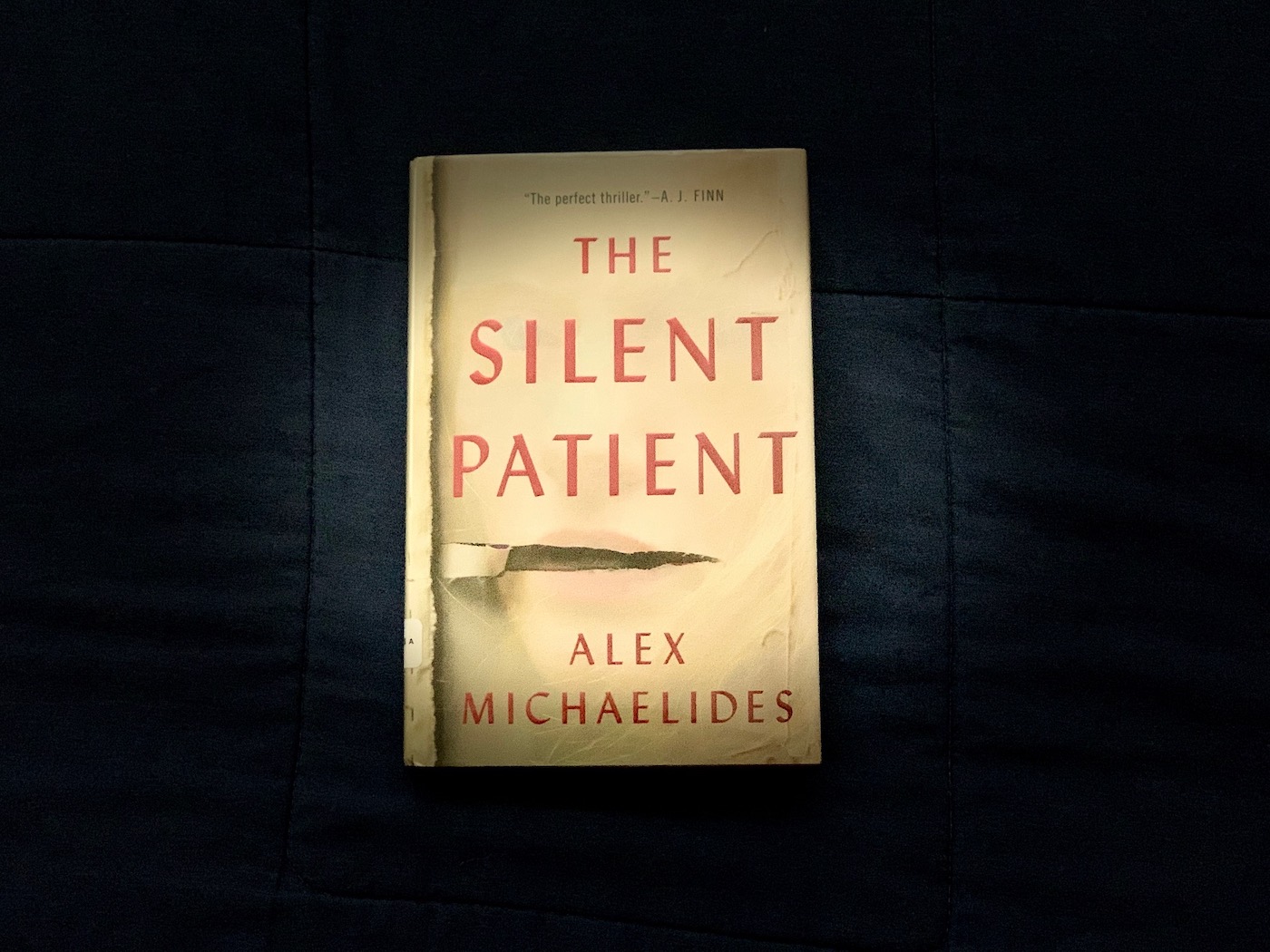

Nevertheless, I thoroughly enjoyed reading this and although it has similarities to thrillers of its kind, it’s still a story full of originality and complexity that’s told in a really interesting way. It’s not that there was anything majorly unresolved, just that I would have liked to see more of what happened next regarding Alicia. I even flicked back a few pages just to make sure that I hadn’t missed anything. The story was wrapped up a little too quickly for my liking, though.

It’s always a bonus when a book can make you think about things on a personal level, and although this wasn’t the core of the story, it shows that Michaelides gives a lot of attention to the smaller details. It’s discussions like this that got me thinking about my own children and emotions and the influence I want to give them. As Winnicott put it, ‘A baby cannot hate the mother, without the mother first hating the baby.'” There were a few quotes that really stood out to me about how the care we receive can affect the care that we give, no matter at what age we experience these kinds of emotions. What I liked most about it were the therapeutic lessons that the narrator gives, giving readers an insight into the mind of a murderer. It’s also a book that is obviously very well-researched. It’s incredibly clever and well-thought-out, with enough going on to keep you impressed even if you did figure out what was going on too early. Of course, while I guessed the main part of the twist, there was still a lot around the main reveal that I hadn’t even thought about. But I just feel like I missed out on having that same reaction that many other readers got to enjoy. I read the final few chapters and just looked at my husband and pulled a sad face. When you guess a twist ending, sometimes you can be filled with joy that you got it right. Not because it’s obvious or predictable, just because I’ve read/seen something similar before. Because of that, I guessed the twist with about 90 pages left. But when you’re a fan of psychological thrillers and you know the tell-tale signs, it’s also the reason why you’re not always as surprised you hoped to be. So, you spend your time reading thinking who’s lying? What are we not being told? It’s not always a bad narrative technique to use as that’s where the suspense comes from. However, the trouble with stories regarding therapy, mental institutes and mental illness is that you know to expect a lot of unreliability. It also helped to know that there was going to be a huge twist at the end, with every review I had read of this book saying that the reader was left absolutely gobsmacked, so I was incredibly excited to get to find out what happens for myself. It’s so intriguing and even before you get to know the characters, you start to wonder what has happened to Alicia to make her mute and what truth she has to unveil. The premise is absolutely incredible and it’s the reason why I wanted to read this book so eagerly. And boy, will you want to find out how it all ends. With short, punchy chapters and a quick pace, it’s easy to devour in one sitting. His determination to get her to talk and unravel the mystery of why she shot her husband takes him down a twisting path into his own motivations - a search for the truth that threatens to consume him.Īlex Michaelides’ debut book is the kind of thriller that you won’t be able to put down. Alicia’s muteness is a mystery that captures not only the public’s imagination, but also Theo’s curiosity.


Published in 2019 and written by Alex Michaelides, The Silent Patient follows Theo Faber, a criminal psychotherapist who begins to work with a famous painter, Alicia, who has refused to talk since being sentence a secure forensic unit in North London after shooting her husband five times in the face. It’s a terrible feeling, the pain of not being loved.” “You know, one of the hardest things to admit is that we weren’t loved when we needed it most.


 0 kommentar(er)
0 kommentar(er)
